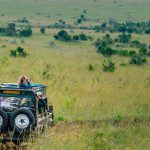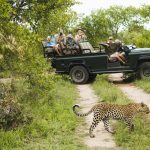Exploring the two key factors that help you to answer this complex question. Is your safari changing your life? By taking this journey are you making a difference for wild habitats? How has the pandemic changed your approach towards taking a safari?
Africa’s remaining vast and treasured wild spaces are becoming increasingly more coveted by the discerning traveller. In the midst of this global pandemic one’s priorities for travel are shifting. Wide open spaces, authentic nature experiences and real soulful interactions are more in demand now than they ever were. The thought of city travel turns most people off, but of course we hope that is temporary. Those who are able to, will seek the purest experiences that can connect them to the natural world and afford them exclusivity.
Aside from this obvious desire to be safe and have access to an abundance of fresh air within sparsely-populated-nature-rich areas, there is also an ever-increasing yearning to transform oneself and at the same time do good whilst travelling. That makes both greater introspection and deeper research so much more pertinent when qualifying a safari journey and its desired outcomes.
As always there are so many things to consider when you travel to Africa on a safari. This includes timing, budget, duration, methods of transport, destinations, type of accommodation, experiences, support teams, safety, health and insurance. All of these are extremely important considerations that must not be disparaged. There is however one question that ranks above all others and you dare not answer it. Failing to do so will leave your safari journey unfulfilled.
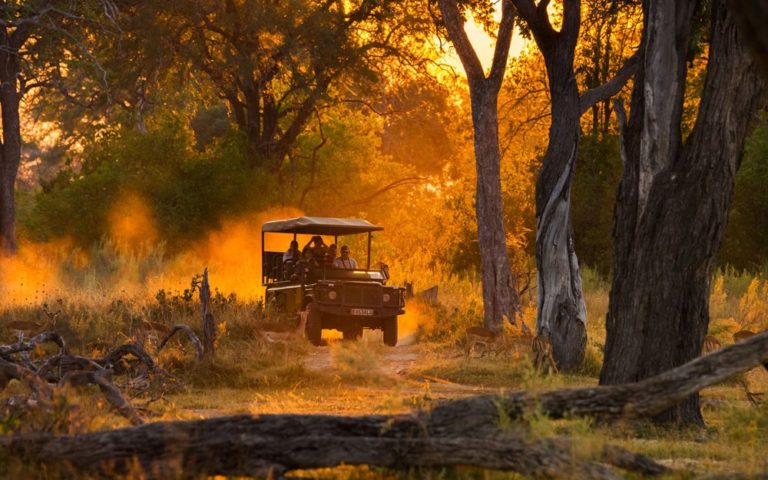
The first element to take into account is the journey’s ability to be life changing, both for yourself and anyone who might travel with you. What would a safari need to deliver in order for it to change your life in ways you could only dream of before embarking on the expedition? If you set out to see the Big 5, a common goal for most safari goers, will your sighting of them be enough to profoundly impact your life. Does it go deeper than that? The beauty with an introspection like this is that you are exploring ways of connecting yourself through-the-journey to your destination. I was born in Zimbabwe and grew up here. I have been so fortunate to have been able to embark on literally hundreds of safaris. Each trip I have been on has changed my life in a different way, of course some more so than others, but there was never a time when the outcome was static. This is where John Muir’s quote in the header image at the top of this article is so succinct. Trying to select something about a natural wild encounter in isolation only makes us realise that so much more is linked back to that one thing. This leads me on to the second element, which is inextricably bound to the first, without which it would itself, in isolation, be worthless.
One has to scrutinise the safari journey’s capacity to tangibly and measurably improve the natural landscape of one’s chosen destinations and in so doing the lives of those they support, be it man, beast or plant.
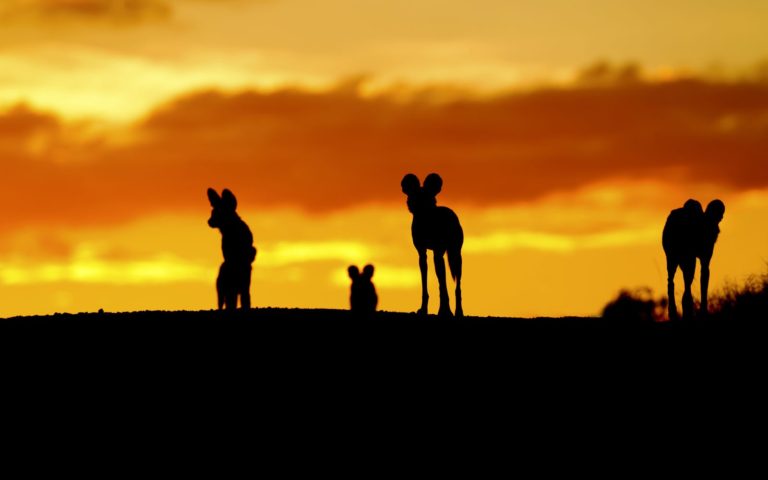
All aspects are interwoven, but the key word attached to natural landscapes is habitat. Without the preservation of native habitats the landscapes become sterile and those who benefit from them dwindle, both in number and diversity. The results can be devastating and the statistics are all too telling. Look no further than the eco-regions around the world that have negatively succumbed to land use changes under the auspices of ‘livelihood improvement.’ It appears that we as a species are mostly only prepared to allocate a value to land that derives short term benefits and where we can understand the results. Nature, in its most complex and purest form is difficult to understand, so we rather simplify it and draw down heavily on it in order to reap the maximum benefit in the shortest amount of time. This we do with little consideration given to the long term effects. It’s easier to allow unsustainable habitat encroachment (e.g. farming, urban growth, mining etc…) into a natural ecosystem than to first explore ways to give that land lasting financial value. Secondly we are often too lazy to find ways to better manage the existing land we occupy. This is a vast and deeply tangled topic, but you get the idea. Below I shall briefly introduce you to a region of Africa we call Zambesia, an example of a place rich in nature that is finely poised, a place where now more than ever, the balance could tip either way.
Zambesia is a pre-colonial term for an area referred to by 19th century explorers in their memoirs. It is a region located in the central-southern part of Africa, stretching coast-to-coast across seven countries from Namibia in the west to Mozambique in the east. It broadly covers the drainage basin of the Zambezi river. This life giving water reservoir gives rise to a biogeographically distinct zone called the Zambezian Region that houses more than a dozen of the world’s most significant eco-regions.
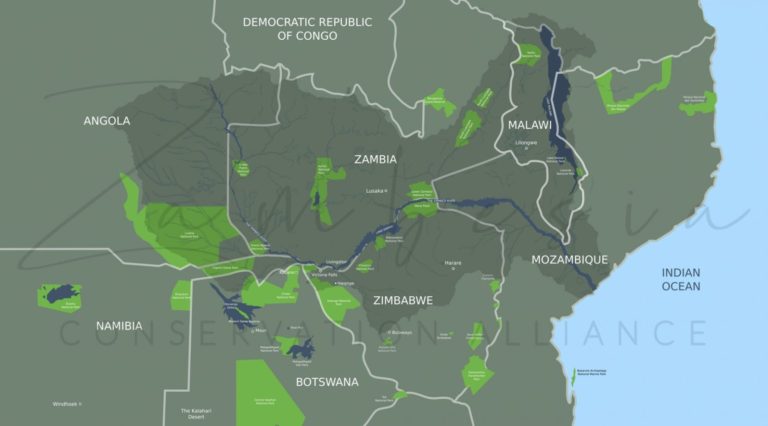
According to this 2016 published paper by Martina Trinkel and Francesco Maria Angelici the African wild lion distribution range has declined by as much as 82%, most of that in the last 40 years. Of the approximately 30,000 remaining wild lions at least 6,000 of them face the imminent threat of local extinction. The Zambesia region is considered to be home to a number of protected lion areas, also known as ‘strongholds’. In other words the lion populations here in recent years have either been stable or are increasing due to strong conservation techniques taking place in protected areas. Research shows where apex predators do well the who ecosystem does well. That was the situation in Zambesia, at least up until the end of 2019.
Almost all of the protected area conservation success stories in Africa have in part been financed by safari tourism (often > 50%), whether it be through consumptive or non-consumptive approaches. The new challenge… – drum roll….enter stage… the Covid-19 Pandemic – …is one which we are, as yet, not fully able to comprehend the true effects of. However the current situation on the ground is a foreboding one. This recent survey report by IUCN shows that protected area conservation efforts have been drastically affected by the pandemic.
The bottom line is that the pandemic has knocked the wind out of tourism and left Africa’s remaining wildlife more vulnerable than ever. And so this is where I bring you back to your ability to answer the key question raised by this article .
The truth is that it’s complicated and your answer may not actually come to you before you travel. In fact you may think you have reached an answer on your journey only for you to recognise that the answer has many components requiring further understanding. For many the answer will sadly never come to them because they did not even consider the question in the first place. Some will get a surface idea of the answer, but only stay there because they fail to dig deeper. Their mistake stems from an inaction towards creating the desire for a life changing experience complimented by a similar lack of desire towards making a positive impact on the natural landscape of their destination.
To get the most from your safari journey it is incumbent on you to first deeply reflect on what your criteria are for a life changing outcome. What do you want to learn about yourself and the environment around you that you simply cannot do without taking this safari trip? How will you take the lessons you learn and use them to improve your life measurably long after your return home? Second, you must research and consult experts in the field of travel and conservation in Africa.
Since you have chosen to read this far it suggests that you truly want to get the most out of your safari and in so doing make a difference on the ground at the same time. I ask you now to take it upon yourself to interrogate the facts, so that you can embark on your safari armed with questions about what makes for real success stories in wildlife conservation. Be ready to discuss these questions with the safari experts, guides, camp managers, staff and various locals you will meet along the way. This will help you grow your appreciation for an answer that is not that simple to comprehend. Keep an open mind because there is no one-size-fits-all approach to successful conservation. Do not get caught up in the sensationalist arguments being played out in the media that only serve to detract from the realities on the ground (e.g. the pro-hunting vs anti-hunting dilemma). In the end only the facts truly matter – are wildlife populations increasing naturally or not AND are the remaining natural ecosystems being maintained, altered or removed?
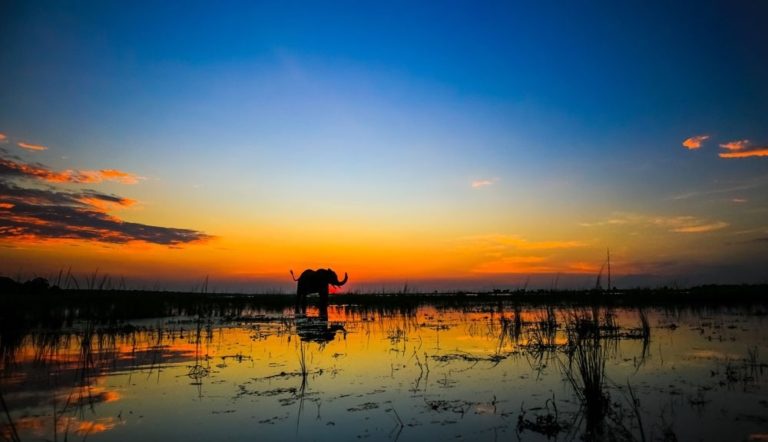
Luke Brown is the Co-Founder of Vayeni Safaris & the Zambesia Conservation Alliance. He is a zoologist, conservationist and luxury-safari entrepreneur with bases in Africa and Europe.



